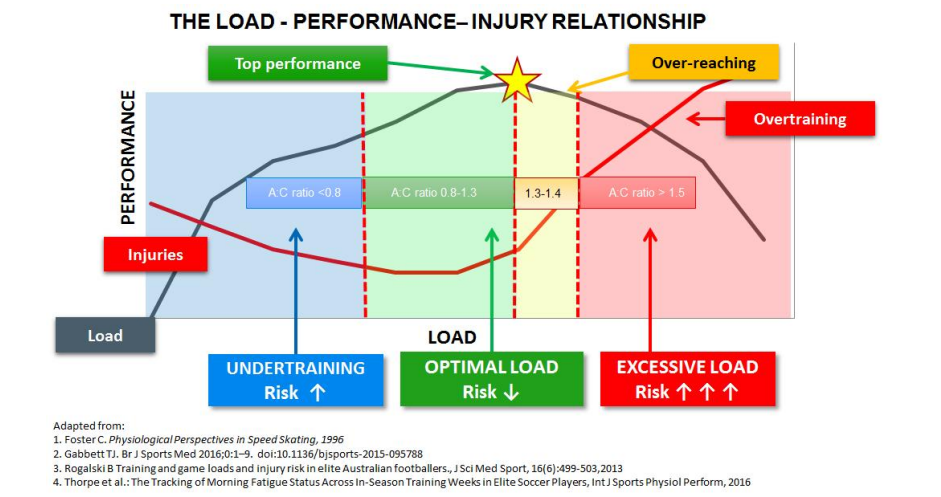Load management is crucial for athletes to optimise performance, prevent injuries, and ensure long-term health. Here are some tips and advice for effective load management:
Individualised Approach:
- Recognise that everyone is unique. Factors such as age, fitness level, injury history, playing position and level of sport should all be taken into account when designing load management strategies.
Periodisation:
- This involves dividing the year into smaller phases with varying intensities and volumes throughout the season.
- Include preseason, in-season, and offseason phases with appropriate emphasis on fitness (i.e. conditioning in pre-season), skill development (i.e. tactical and technical during season), and recovery.
Gradual Progression:
- Avoid sudden spikes in training intensity or volume.
- Gradually progress the workload to allow time to adapt and reduce the risk of overuse injuries. This is particularly important for those athletes who are juggling club, representative and school academy commitments.
Rest and Recovery:
- Prioritise rest and recovery days in the training schedule.
- Adequate sleep, nutrition, and hydration are essential for optimal recovery.
- Work, school and life stressors can also play a major role in how we handle load and recovery.
Regular reflection and evaluation:
- Things change so remember to adapt along the way. An effective load management program requires constant evaluation and adjustment based on the individual needs and responses with the main focus on striking an adequate balance between training load intensity and recovery.
If you would like help planning and tailoring your training schedule, book an appointment to see our Senior Physiotherapist Jess who has a special interest in this area.
Author: Jessica Norton

